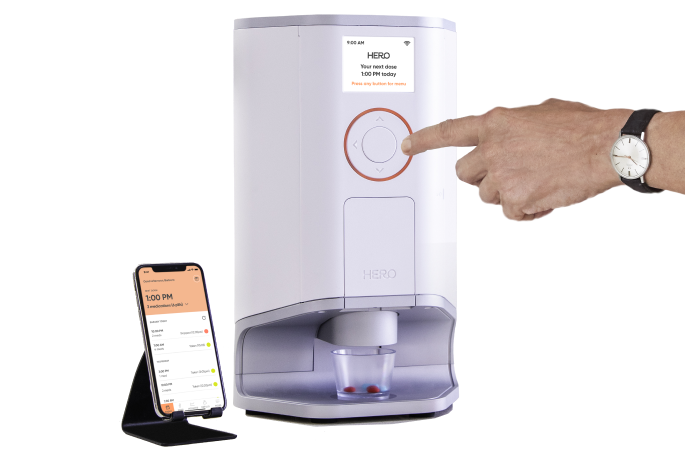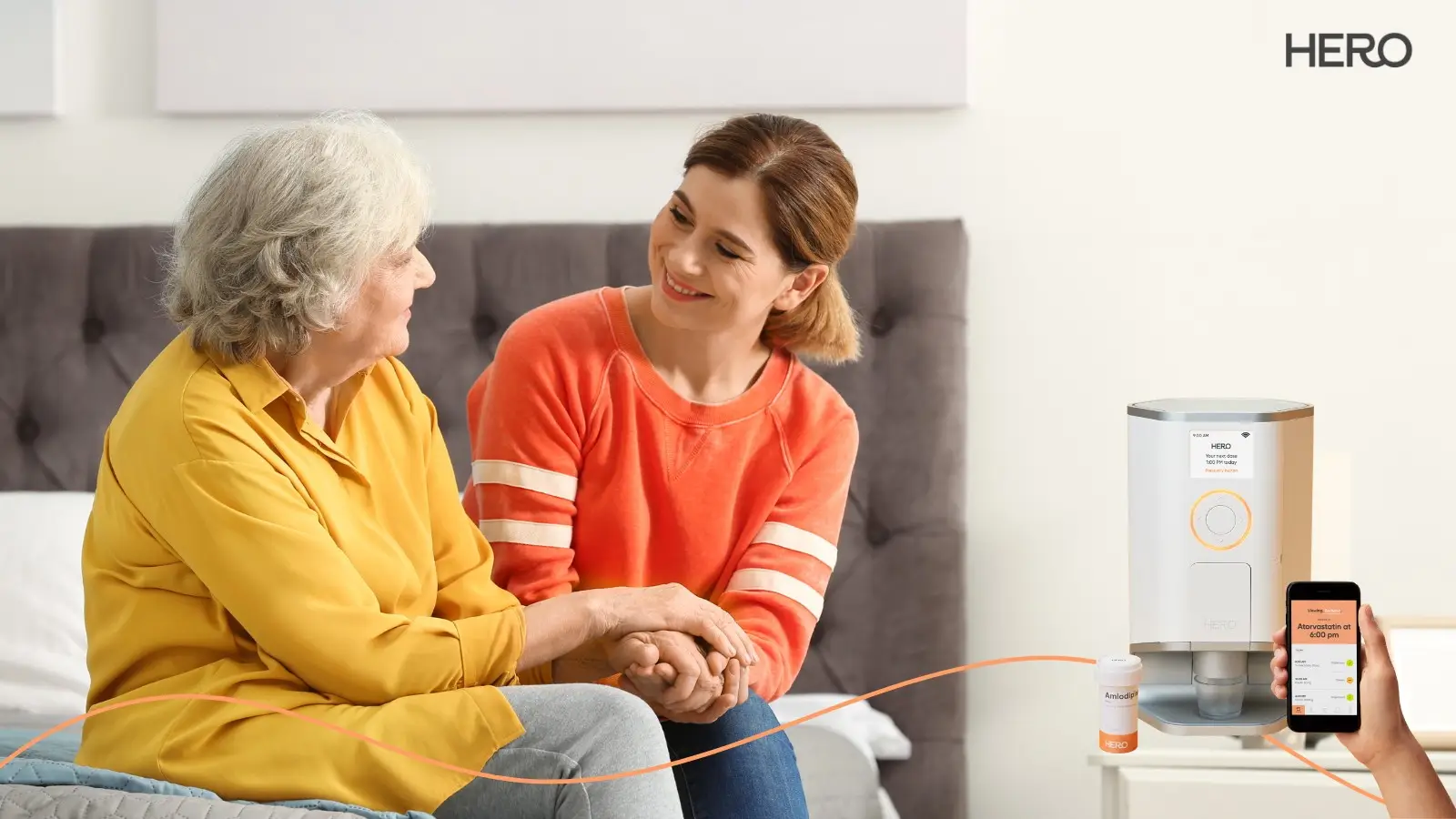Most common OTC medications: Top 10

Over-the-counter medications have become part of our daily lives. From minor aches and pains to stuffy noses and upset stomachs, we reach for them before reaching out to our doctors.
Since they’re so common, we put together a handy dosage guide for 10 name-brand and generic OTC drugs you’ll find in most everyone’s medicine cabinet. Please note: these recommendations are for people over the age of 12, and of course, your doctor’s orders take precedent. Because a Tylenol dose for one person might not be right for another.
Understanding Over-The-Counter Medications
Over-the-counter medications (OTC) have become a vital part of our healthcare and drug landscape. These OTC medications are available without a prescription and are sold directly to consumers, making them an accessible solution for many illnesses, including common cold, mild diarrhea, runny nose, and more.

Treating Common Ailments with OTC medicine
From minor aches and pains to stuffy noses and upset stomachs, we often reach for an OTC drug like Tylenol, Ibuprofen, or Pepto Bismol before reaching out to our doctors.
These OTC medicines treat a wide variety of symptoms and are commonly used across different age groups. Nonsteroidal anti-inflammatory drugs (NSAIDs), oral decongestants, proton pump inhibitors, and cough suppressants are some examples of over-the-counter medicines. Store brands or generic OTC medicines provide similar treatment benefits at often more affordable rates.
OTC Medication Name, Dosage, and Safety Measures
Since they're so prevalent, we put together a handy dosage guide for 10 name-brand and generic OTC drugs you'll find in most everyone's medicine cabinet. Please note: these recommendations are for people over the age of 12, and children younger than that should follow different guidelines. Also, if you are pregnant or have liver or kidney problems, consult your pharmacist or doctor, as your needs might differ. Of course, your doctor's orders take precedent, because a Tylenol dose for one person might not be right for another.
Medication Name | Dosage | Amount Per Dosing | Do Not Exceed |
Tylenol® (acetaminophen) | Regular Strength (325 mg/ tablet) | 2 tablets every 4 to 6 hours while symptoms last | Not to exceed 10 tablets in 24 hours, unless directed by a doctor. Total labeled daily dose: 3250 mg |
–– | Extra Strength (500 mg/ tablet) | 2 caplets every 6 hours while symptoms last | Not to exceed 6 caplets in 24 hours, unless directed by a doctor. Total labeled daily dose: 3000 mg |
Advil® (ibuprofen) | 1 tablet/ caplet/ gel caplet every 4 to 6 hours while symptoms persist. If pain or fever does not respond to 1 tablet/ caplet/ gel caplet, 2 may be used | Do not exceed 6 tablets/ caplets/ gel caplets in 24 hours unless directed by a doctor. | |
Aleve® (naproxen sodium) | 220 mg/ tablet, caplet, gelcap or liquid gel | Take one tablet, caplet, gelcap or liquid gel every 8 to 12 hours while symptoms last. For the first dose, you may take 2 pills within the first hour. | Do not exceed more than 2 tablets, caplets, gelcaps or liquid gels in 12 hours, and do not exceed 3 tablets, caplets, gelcaps or liquid gels in 24 hours. The smallest effective dose should be used. Drink a full glass of water with each dose. Do not take for more than 10 consecutive days for pain or 3 days for fever, unless directed by a doctor. |
Aspirin | Regular Dose (325 mg/ caplet) | Take 1 or 2 caplets every 4 hours. Drink a full glass of water with each dose. | Do not exceed 12 caplets in 24 hours, unless directed by a doctor. |
–– | Low Dose (81 mg/ tablet) | Take 4 to 8 tablets every 4 hours. Drink a full glass of water with each dose. | Do not exceed 48 tablets in 24 hours unless directed by a doctor. |
Benadryl® (diphenhydramine) | 25 mg/tablet | Take 1 to 2 tablets every 4 to 6 hours or as directed by a doctor. | Do not take more than 6 doses in 24 hours. Use only as directed. |
Sudafed® (pseudoephedrine) | Sinus Congestion (30 mg/ tablet) | Take 2 caplets every 4 to 6 hours. | Do not take more than 8 caplets in 24 hours. |
–– | Sinus Congestion 12 Hour (120 mg/ tablet) | Take 1 tablet every 12 hours. | Do not take more than 2 tablets in 24 hours. |
–– | Sinus Congestion 24 Hour (240 mg/ tablet) | Swallow one whole tablet with water every 24 hours. Do not divide, crush, chew or dissolve the tablet. | Do not exceed one tablet in 24 hours. |
Melatonin | 1-10 mg/ tablet | 0.5 mg up to 5 mg | Do not exceed nine months of taking for light difficulty falling asleep. |
Pepto-Bismol® (bismuth subsalicylate) | Original or Rapid Relief LiquiCaps (262 mg/ chewable tablet, caplet or LiquiCap) | Take 2 tablets as needed. | Maximum daily dose: 8 regular-strength (262 mg) doses or 4 extra-strength (525 mg) doses. Do not use for more than 2 days. |
Pepcid® (famotidine) | Pepcid Complete (10 mg/ chewable tablet) | To relieve symptoms, chew 1 tablet before swallowing. Do not swallow tablet whole: chew completely. | Do not use more than 2 chewable tablets in 24 hours. |
–– | Original Strength (10 mg/ tablet) | To relieve symptoms, swallow 1 tablet with a glass of water. Do not chew. To prevent symptoms, swallow 1 tablet with a glass of water 15-60 minutes before eating food or drinking beverages that cause heartburn. | Do not use more than 2 tablets in 24 hours. |
–– | Maximum Strength (20 mg/ tablet) | To relieve symptoms, swallow 1 tablet with a glass of water. Do not chew. To prevent symptoms, swallow 1 tablet with a glass of water 10-60 minutes before eating food or drinking beverages that cause heartburn. | Do not use more than 2 tablets in 24 hours. |
Tums® (calcium carbonate) | Regular Strength (500 mg/ tablet) | Chew 2-4 tablets as symptoms occur, or as directed by a doctor. | Do not take more than 15 tablets in 24 hours. Do not take for symptoms that persist for more than 2 weeks unless advised by a doctor. |
–– | Extra Strength (750 mg/ tablet) | Chew 2-4 tablets as symptoms occur, or as directed by a doctor. | Do not take more than 10 tablets in 24 hours. Do not take for symptoms that persist for more than 2 weeks unless advised by a doctor. |
Complex med schedule? We solved it.
Hero’s smart dispenser reminds you to take your meds and dispenses the right dose, at the right time.

Organizing Your Over-The-Counter Medicine
Whether a medication is prescribed to you or purchased off the shelf at the pharmacy, keeping pills in order is one important step to make sure that you get the right dose at the right time. A pill organizer is handy for on-the-go use or travel, but if OTC medicines are a part of your daily routine, we recommend an automatic pill dispenser like Hero.
Simplifying Medication Management
More than a medicine organizer, Hero is the all-in-one medication management system that aids you to get the right dose at the right time. So your regular prescriptions, your daily Advil, and your Sunday night melatonin are all in one safe, convenient place, auto-sorted and dispensed on your schedule.
Conclusion: The Comprehensive Approach to OTC Medications
Safety and Effectiveness
OTC medications are a useful tool in our daily healthcare. They allow us to treat symptoms of minor aches and sore throat without a visit to the doctor. However, proper knowledge about active ingredients, high doses that might cause liver damage, and potential interactions with other drugs is essential. Herbal remedies, cough medicines, and cold medicines are examples of over-the-counter OTC medicines that require careful consideration.
Guidelines and Regulations
Always follow the guidelines for OTC medications, including liquid form options for those who struggle with tablets, and be aware of the FDA's role in regulating these medicines. Remember, OTC drugs are effective for many ailments, but misuse can lead to harm, constipation, or even overdose.
Empowering Responsible Treatment
From treating bowel movements to being pain relievers, over-the-counter medications and OTC pills are there for us. But the understanding of these medicines, from acetaminophen to antihistamines like Benadryl, is paramount. With this guide to the most common OTC drugs, you have additional information to help aid you in treating many symptoms and conditions responsibly. Always consult with a healthcare provider if you have questions or need personalized advice. And remember, Over-The-Counter doesn't mean without care - it means access to treatment, responsibly and effectively.
Related articles
“How much Advil is too much Advil?” & other medication dosage FAQs
Taking Multiple Medications: A Polypharmacy Guide
So You’ve Been Prescribed A Pill The Size of A Nickel: How to Swallow Pills
The contents of the above article are for informational and educational purposes only. The article is not intended to be a substitute for professional medical advice, diagnosis, or treatment. Always seek the advice of your physician or other qualified clinician with any questions you may have regarding a medical condition or its treatment and do not disregard professional medical advice or delay seeking it because of information published by us. Hero is indicated for medication dispensing for general use and not for patients with any specific disease or condition. Any reference to specific conditions are for informational purposes only and are not indications for use of the device.



